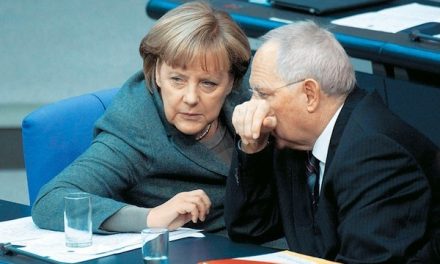By Prince Michael of Liechtenstein, Geopolitical Intelligence Services
Johannes Hahn, the European Union’s commissioner for enlargement, was in Sofia, Bulgaria last week to talk with foreign ministers of candidate countries to join the 28-nation bloc.
Worried by Russian activities in the Western Balkans, the EU has decided on an opening toward countries of this region. To start, accession negotiations might be opened with Serbia and Montenegro.
Nasty obstacle
But first, Mr. Hahn needs to dispose of a nasty, needless obstacle created by Greek chauvinism toward Macedonia. Greece’s objections to the Republic of Macedonia’s name have already blocked the country’s NATO membership and EU aspirations for a long time.
Opposition by the Greek authorities is based on historical tradition and the existence of an adjoining region in Greece called Macedonia. This grotesque situation is responsible for the EU’s use – at Greek insistence – of a peculiar official jargon: “the Former Yugoslavian Republic of Macedonia.”
The dispute has poisoned the EU’s relationships in the Western Balkans, an area where Western and Russian interests collide. This has played to some extent into Russian hands.
With the EU at last determined to take a closer interest in the Western Balkans, negotiations between Greece and Macedonia over the issue have intensified. Alternative names have been suggested by United Nations mediators, including New Macedonia, Northern Macedonia, Upper Macedonia and Vardar Macedonia.
![]() Exaggerated Greek nationalism is becoming a liability for the rest of Europe
Exaggerated Greek nationalism is becoming a liability for the rest of Europe
Other ridiculous demands were made by Athens, and Macedonian Prime Minister Zoran Zaev even agreed to a few – like dropping “Alexander the Great” from the names of Skopje’s international airport and the E-75 motorway.
Macedonia is not the only victim of this kind of niggling harassment. The Greek government has also been feuding with Albania over oil and gas deposits in the Ionian Sea and restitution for the Cham community, an Albanian ethnic minority that was forcibly expelled from Greece after World War II.
Even when one turns to the deep historical enmity between Turkey and Greece, it should not be assumed that the fault lies solely on the Turkish side. While the Greek authorities pretend to have nothing but peaceful intentions, it is hard to ignore their poor relations with nearly every neighbor. This is not a coincidence. It results from exaggerated Greek nationalism, which is becoming a liability for the rest of Europe.
Violating rules
And that is not the worst of it. A much bigger problem for Europe is the state of Greece’s public finances, caused by the corruption and poor governance that have plagued the country since a military coup toppled its constitutional monarchy in 1967.
As we know now, Greece joined the eurozone in 2004 under false pretenses, violating all fiscal rules and principles. From the beginning, the country’s public accounts were manipulated – and this was known and strangely tolerated by the other member states, the European Central Bank and the European Commission. Being privy to this knowledge, they became accomplices in the crime.
When the Greek sovereign debt crisis broke out in 2010, Europe poured hundreds of billions of euros into the country, treating its illusory “austerity” program as fact. Soon enough, the adjustment measures proved to be a mirage and none of the fiscal targets were reached. The whole sham was sold to the public as necessary condition for preventing a collapse of the euro area.
![]()
![]()
![]()
Today, the Greek bailout continues under scarcely changed conditions. Because people have become accustomed to it as a mundane, everyday reality, it has disappeared from the headlines. Europe once again is turning a blind eye to what is going on in Greece.
The strangest part of the story is why Europe was willing to use extraordinary (and extraordinarily costly) financial measures but refused to apply the only effective medicine – letting Greece abandon the euro. That would have saved the Greek people a lot of misery in the medium and long run.
Double standard
The EU seems to be having trouble with certain members. Brexit is a prime example. So is the present carping, admonishments and pressure that is being applied in the name of European values. The main targets are now Hungary and Poland, but criticism has also been directed toward Austria and the Czech Republic.
Very little such criticism – but a lot of financial support – has been directed at Greece. The country’s diplomatic troublemaking, poor governance and lack of economic discipline are shocking – as is Europe’s complicity in this state of affairs. How can one credibly urge the Western Balkan states to improve governance and respect their neighbors’ borders while giving Greece a free pass?
This sort of hypocrisy only harms Europe’s credibility. While we are all for as much self-determination for EU member states as possible, we can only wonder why Europe has been so lenient toward successive governments in Greece.



















